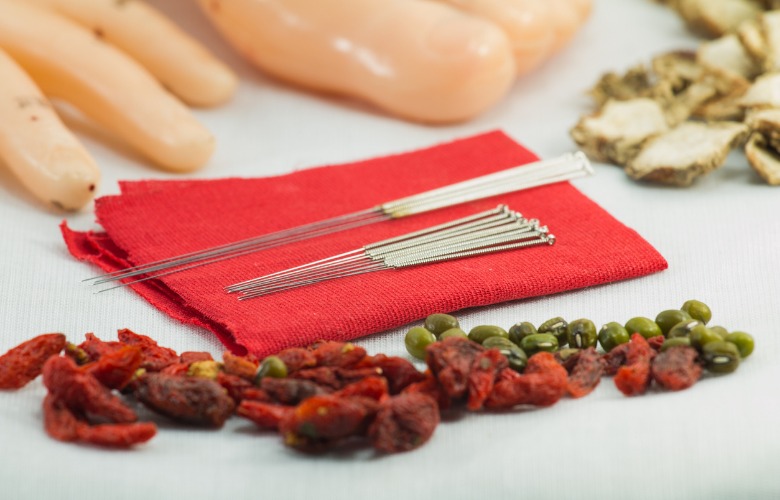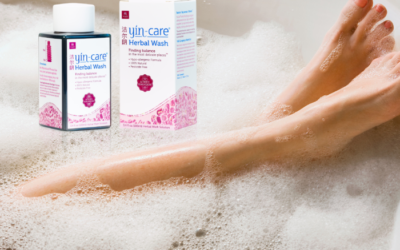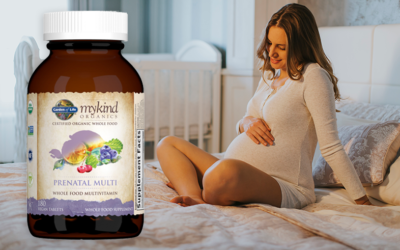How Acupuncture and TCM Can Help Regulate Menstruation and Boost Fertility
There’s amenorrhea, which is an absence of your period for at least three months in a row, or in girls that haven’t begun menstruation by age 15. Pregnancy is the most common type of amenorrhea. There’s also dysmenorrhea, which is known as menstrual cramping that can occur just before and during a menstrual period. Then there are other conditions that can cause menstrual and hormonal irregularities such as: Polycystic ovarian syndrome, pelvic inflammatory disease, endometriosis, and uterine fibroids. Some of these common conditions and diseases can influence infertility: in which a woman has tried to get pregnant for a year after one year of unprotected sex and has not been able to conceive.

Acupuncture and Traditional Chinese Medicine can help!
Although, Acupuncture and Chinese Medicine have become more popular and accepted in modern time, it has been around approximately 3,500 years and is one of the most common healing systems in the world. Acupuncture helps heal the body by balancing the energy within it. Both Acupuncture and Chinese herbs are utilized to preserve health, prevent illness and rebuild vitality to the body. The belief in Traditional Chinese Medicine, is that all the organs in our body are interrelated to one another and are connected internally and externally.
In TCM, the essential energy within us is considered our “Qi” pronounced “ch-ee”. The Qi flows along pathways which are known as “channels” that run the length of our body, limbs and to each of our organs. These channels all being connected to one another, forms an operating system, much like the NYC subway. So, when the body is in a state of health, the Qi within us is also balanced and in a harmonious state. And the opposite is true, when there is an imbalance in our body, it can lead to many different types of conditions such as allergies, the common cold, respiratory problems, headaches, migraines, digestive issues, anxiety, depression, back pain, joint pain, fatigue, irregular menses and infertility to name a few.
So how can Acupuncture and Chinese Medicine help regulate the menses and boost fertility patients?
Acupuncture uses solid, filiform needles that are safe, disposable and are approximately the size of a strand of hair. The needles are inserted at specific points along the channels of the body. Each of the points help regulate the flow of Qi of the channel, along with their corresponding organs. So, for example, if the patient’s chief complaint is amenorrhea for the last 6 months and she is not pregnant, the treatment plan for her would likely include points on the body that would help balance and move the Qi in her body and help circulate her blood to promote menstruation. In a case like that, specific points like: Xue Hai SP 10 would be used because it is a known Acupuncture point to remove blood stasis of blood in the uterus and regulate the blood.
With regard to Chinese Herbs, they are formulated to maintain health and prevent illness by creating balance and harmony within the body. Herbal formulas can help in many ways such as; warm us up when we’re cold, strengthen our immune system when it is weak, give us energy when we’re feeling lethargic, and help calm our mind when we are feeling anxious or having trouble falling asleep. These are just a few examples of what Chinese herbs can do.
In a case where the patient has had amenorrhea, the practitioner would have the same intention as the Acupuncture treatment: to balance and move the patients Qi in the body and to promote circulation in hopes to promote menstruation. A famous Chinese Herbal Formula for women to help nourish and invigorate the blood, is called Si Wu Tang, Four Substance Decoction. This formula is indicated for irregular menstruation and can nourish and regulate the blood.
In a clinical study done in December 2011, ‘Acupuncture might have contributed to improving amenorrhea in a top athlete’ concluded that after hormone replacement therapy was started in May 2010 in conjunction with regular acupuncture treatment, menstrual blood flow restarted and BBT moved close to the biphasic pattern. (PubMed)

Phases of the Menstrual Cycle
The menstrual cycle is complex and is controlled by many different glands and the hormones that these glands produce. For example, the hypothalamus within the brain sends signals to the pituitary gland which secretes hormones into your bloodstream and alerts the ovaries to produce the hormones estrogen and progesterone. The menstrual cycle acts as a biofeedback system in that the hormones, glands and organs are affected by each other’s actions. Therefore, if you are trying to conceive and haven’t been able to, or are experiencing any menstrual or hormonal irregularities, regulating your cycle and balancing your hormones are key to your fertility health.
A woman’s menstrual cycle can be broken down into 4 phases: menstruation, the follicular phase, ovulation and the luteal phase. The average menstrual cycle length lasts approximately 28 days and can range between 21 – 35 days with menses lasting between two to seven days. Your period, known as the menstrual phase begins on the first day of menstruation and typically lasts to day 5 of the menstrual cycle. In this phase, estrogen and progesterone levels are decreased, and a thickened uterine lining eliminates menstrual fluids through the vagina. Many women experience abdominal cramps and pain during this phase because prostaglandins (chemicals in the body that affect reproduction and inflammation) trigger uterine and abdominal muscles to contract and discharge menstrual fluid. From a TCM perspective during this part of the cycle, it’s important to ensure good quality of Qi and blood, support the heart-blood and uterine connection and help manage the amount of blood flow. So, if there is little blood flow, Acupuncture points and Chinese medicine can be used to help build and invigorate the blood. While if a patient is experiencing painful cramps, heavy blood flow and blood clots, a great formula for this is Shao Fu Zhu Yu Tang known in English as ‘Drive out Blood Stasis in the Lower Abdomen Decoction’. This Chinese herbal formula is used for many menstrual disorders and helps promote blood circulation, stops pain and removes blood stagnation in the lower abdomen.
The follicular phase also starts on day one of the menstrual phase, with follicles developing between days 6 – 12 and ending with ovulation. The hypothalamus signals the pituitary gland to release the follicular stimulating hormone (FSH) which stimulates the egg cells in the ovarian follicle to grow and produces about five to twenty follicles. Out of all of these follicles, usually one dominant egg cell matures and while it grows, it releases estrogen and causes the lining of the uterus to thicken for a potential pregnancy. During this part of your cycle, Acupuncture points and Chinese medicine are used to help nourish the blood of the liver and kidneys, support the ovaries and help build an ideal environment for fertility. The Chinese herbal formula, Liu Wei Di Huang Wan or English name, ‘Six-Ingredient Pill with Rehmannia is a wonderful nourishing formula for this.
During the mid-cycle or ovulation phase, the release of the mature egg surfaces from the ovary between day 13 to 15. For this part of the phase in TCM we would help nourish and strengthen the blood and essence of the spleen and the kidneys. The rising levels of estrogen cause the hypothalamus to release a chemical called gonadotropin-releasing hormone (GnRH) which prompts the pituitary gland to produce elevated levels of the luteinizing hormone (LH) and FSH. It is the surge of the LH that triggers ovulation causing the mature egg to burst from the follicle, which transforms into a ruptured structure called the corpus luteum. This phase of the menstrual cycle is the ‘fertile window’ of knowing when you are ovulating and the optimum time for getting pregnant. The egg then exits the ovary and moves to the fallopian tube via cilia where sperm may be present. Fertilization occurs here and once the egg has been fertilized, it travels down the fallopian tube into the uterus for implantation where it continues to grow. The average life span of the egg is only 24 hours so in this limited time if the egg and sperm don’t unite, the egg will disintegrate.
The pre-menstrual or luteal phase starts from about day 15 until the end of your cycle. The corpus luteum begins secreting elevated levels of progesterone and small amounts of estrogen needed to maintain a thickened uterine lining for the embryo to stick. Once implantation occurs, it produces a hormone called human chorionic gonadotropin (HCG) which is the hormone detected in a urine pregnancy test. If pregnancy does not occur, the corpus luteum degenerates and triggers an increase in FSH and a decrease in estrogen and progesterone. This causes the lining of the uterus to shed and return to the menstrual phase on day 1 of the cycle. If there is a chance that implantation has occurred, Acupuncture points and Chinese medicine can help support Qi and blood flow to the uterus as well as help ready the endometrial lining for implantation. If there’s no chance of pregnancy, liver Qi begins to rise meaning some PMS symptoms can occur so Acupuncture points that will help move the Qi and invigorate the blood would be used.
Some excellent Acupuncture points used to help promote and regulate your menstrual cycle are: Da Dun LV 1, Shui Dao ST 28, Gui Lai ST 29, Gong Sun SP 4, Di Ji SP 8, and Qi Hai Ren 6.

Boost Your Fertility
Acupuncture and Chinese Medicine can also improve fertility health in both men and women on its own or in couples needing assistance for fertility support with Western modalities in ART (assisted reproductive technology) such as, intra-uterine insemination (IUI) and in-vitro fertilization (IVF). First, your doctor must determine the factors that are contributing to your infertility, the age of the couples and the duration of the infertility.
A systematic review in February 2015 on ‘Chinese herbal medicine for female infertility: an updated meta-analysis’ concluded: Our review suggests that management of female infertility with Chinese herbal medicine can improve pregnancy rates 2-fold within a 3-6 month period compared with Western medical fertility drug therapy. In addition, fertility indicators such as ovulation rates, cervical mucus score, biphasic basal body temperature, and appropriate thickness of the endometrial lining were positively influenced by CHM therapy, indicating an ameliorating physiological effect conducive for a viable pregnancy. (PubMed)
By combining Acupuncture and Chinese medicine, it can correct imbalances in the reproductive system in males and females, which could be hindering a woman’s chance of becoming pregnant. It is recommended that in couples wanting to conceive that he or she or both start getting treatments at least 3 months prior to conception. This is also the optimal time to start getting treatments before undergoing IVF.
In women, fertility Acupuncture and Chinese medicine helps: balance reproductive hormones, build a healthy uterine lining and increase circulation to the ovaries and uterus, helps minimize stress, supports a healthy ovarian follicle, helps with diminished ovarian reserve and high follicle stimulating hormone, and helps support and increase the effect of ART’s and embryo transplantation. In men, fertility Acupuncture and Chinese Medicine can also improve: sperm count and quality, motility, morphology, certain immune factors that can also prevent conception, low libido, and sexual function.
For more information, you may contact Dr. Sharron Leigh at Acupuncture Atlanta.
References:
Donoyama, N., Hotoge, S., & Ohkoshi, N. (2011). Acupuncture might have contributed to improving amenorrhoea in a top athlete. Acupuncture in Medicine,29(4), 304-306. doi:10.1136/acupmed.2011.010081
Ried, K. (2014). Management of female infertility with traditional Chinese herbal medicine: An updated meta-analysis. Advances in Integrative Medicine. doi:10.1016/j.aimed.2014.10.025

Sharron is a Doctor of Acupuncture and Chinese Medicine specializing in primary care health, Chinese Herbology, women’s health, male and female fertility and certified in facial rejuvenation. As a Doctor of Acupuncture and Chinese Medicine, her passion and goals are to help her patients achieve and sustain their optimum health. Sharron is excited to be joining Acupuncture Atlanta in December 2018 as a licensed Acupuncturist. She lives in Atlanta, Georgia with her two cats, Saki and Suki, and loves cooking healthy, gourmet meals in her spare time. Sharron can be contacted via email sharron@acuatlanta.net



